The Black Sea
The Black Sea and the Caspian Sea are these two huge bodies of water, giant lakes really, which dominate this huge western and central Asia region. The vertically-standing Caspian Sea to the east has proved our nemesis because it sits between us and the central Asian countries collectively known as the Stans which we couldn’t get to. And the horizontally-lying Black Sea to the west is in the news every day because of the critical part it plays in the war between Russia and Ukraine. But we’re at the ‘safe’ end of the Black Sea and keen to explore it for whatever it’s worth.
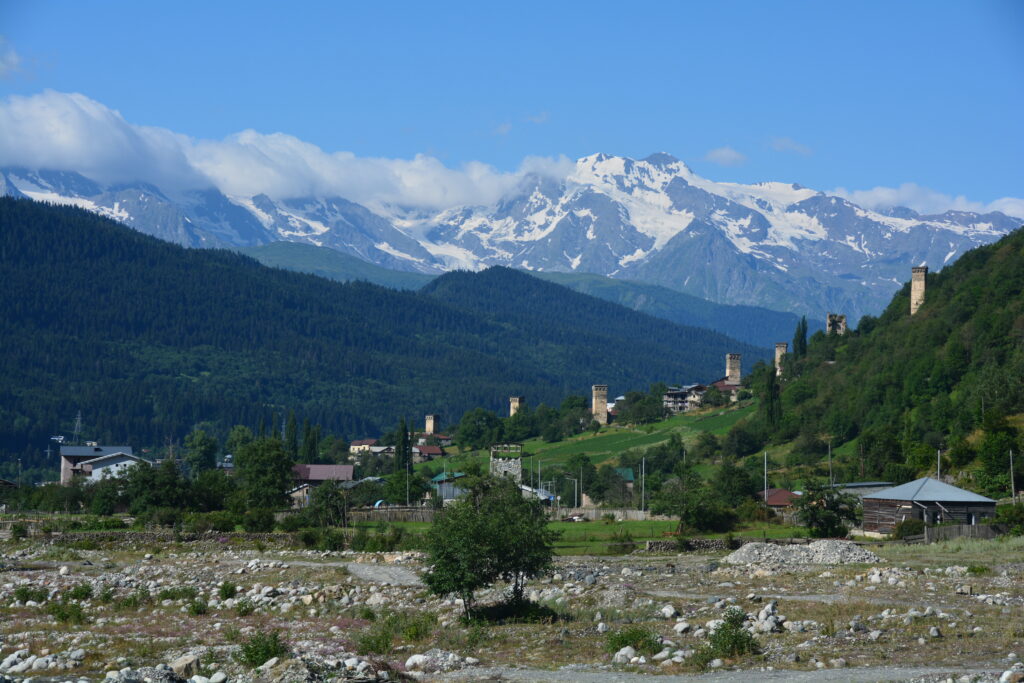
But from the heart of the Greater Caucasus Mountains where we were at the moment the Black Sea seemed a long way away. Surrounded by these geographic giants, the mountains control the weather, the sunlight, the transport, the culture and the people in this region. We were sorry to leave them as it’s been a wonderful highlight of our visit to Georgia.
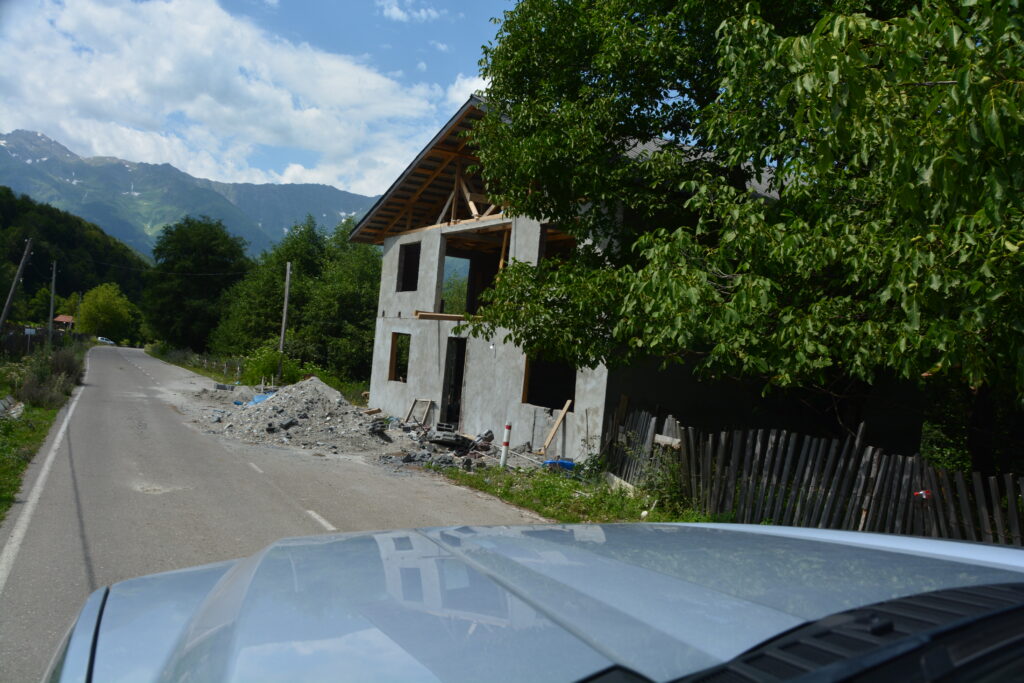
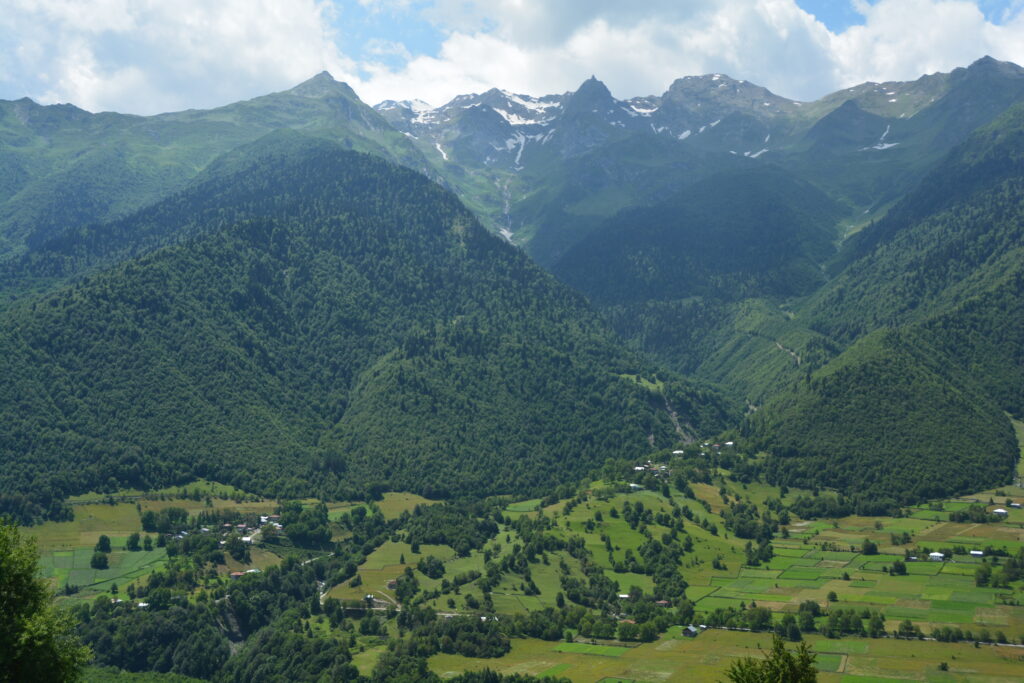
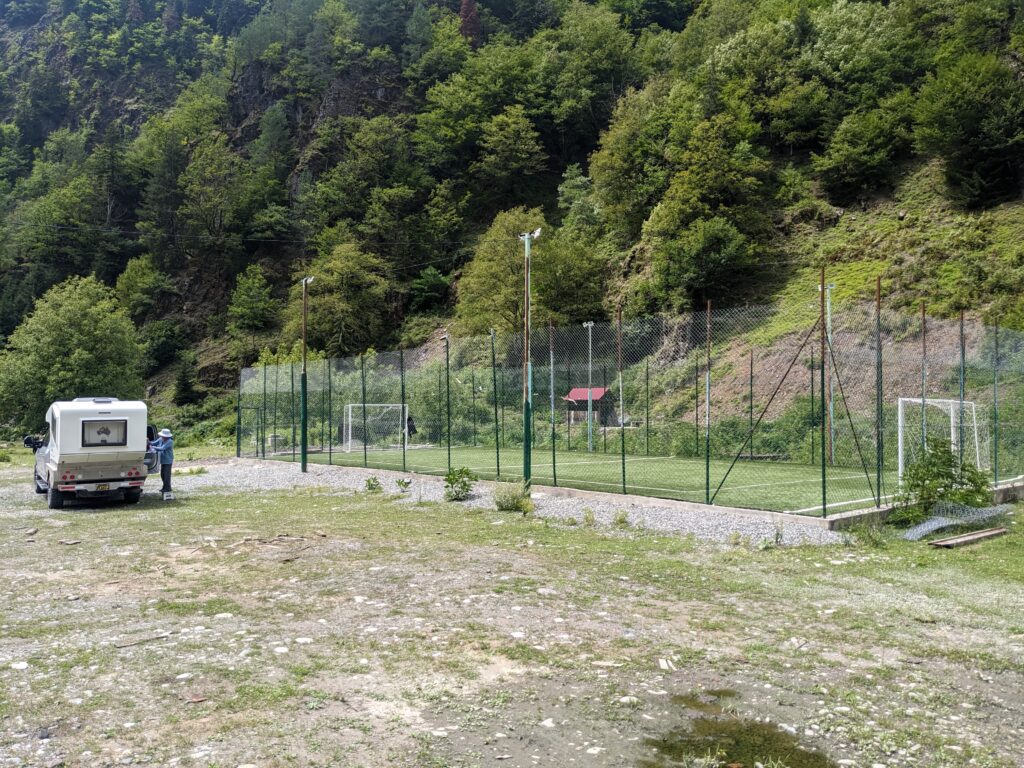
We moved eastward, following the raging Patara Enguri River as it cut a deep slice through the mountains, craning our neck at times to see the top of the gorge through Tramp’s windows. Eventually the river flows into a large Soviet-built reservoir with a massive dam controlling the river’s flow and presumably still making power for Georgians in this region.
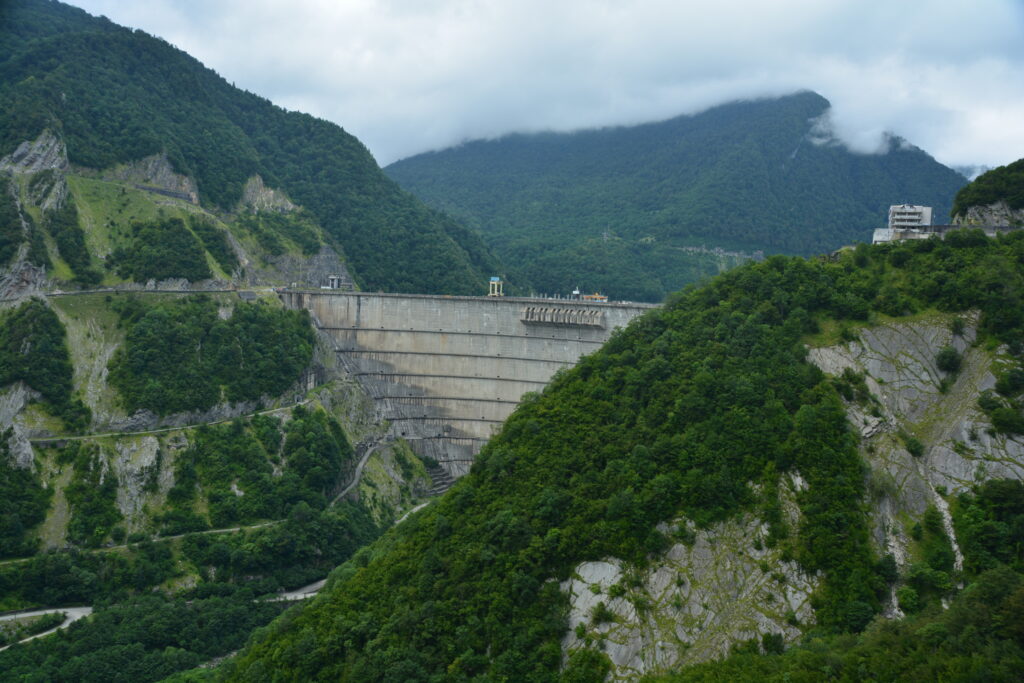
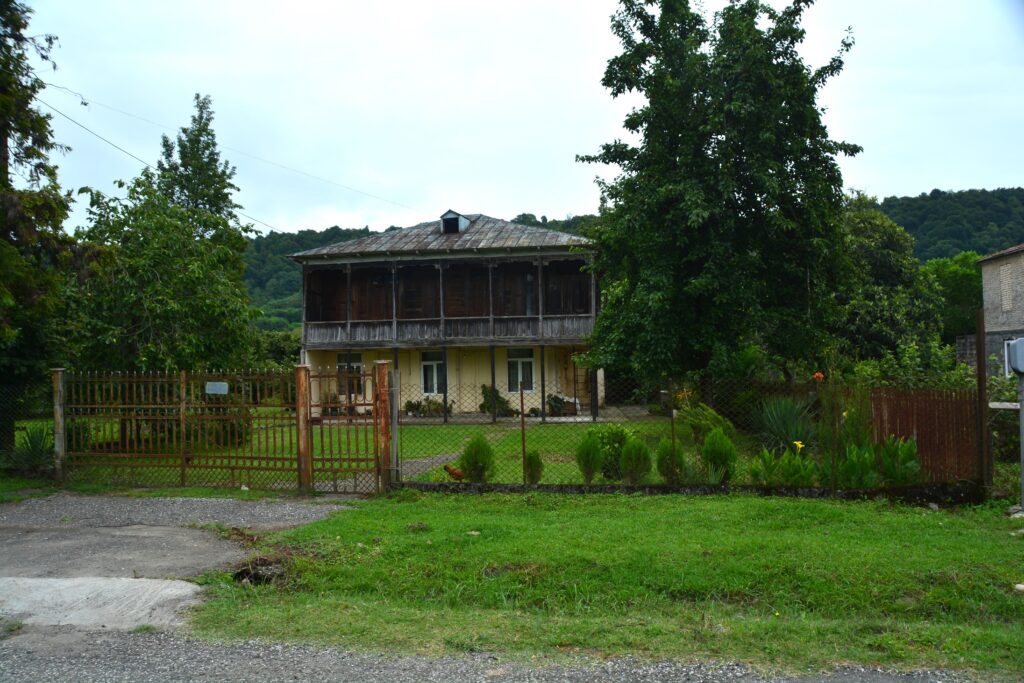
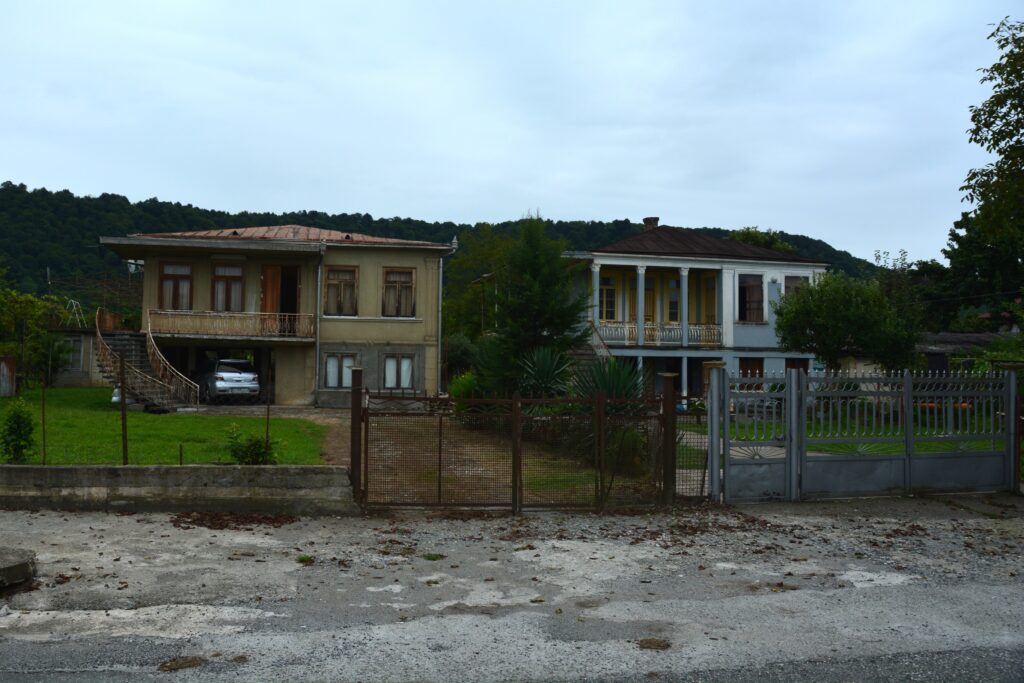
We camped the night in the quirkiest of places, another first for us. The short story is something like this: A local Prince and Princess, the Prince being a descendent of the man who married Napoleon’s younger sister and was declared a Prince due to his loyalty to the big man himself, were evicted from their chateau by the Soviets in 1906. The Soviets went on to steal or destroy everything of value on the extensive grounds and buildings which were left to ruin.
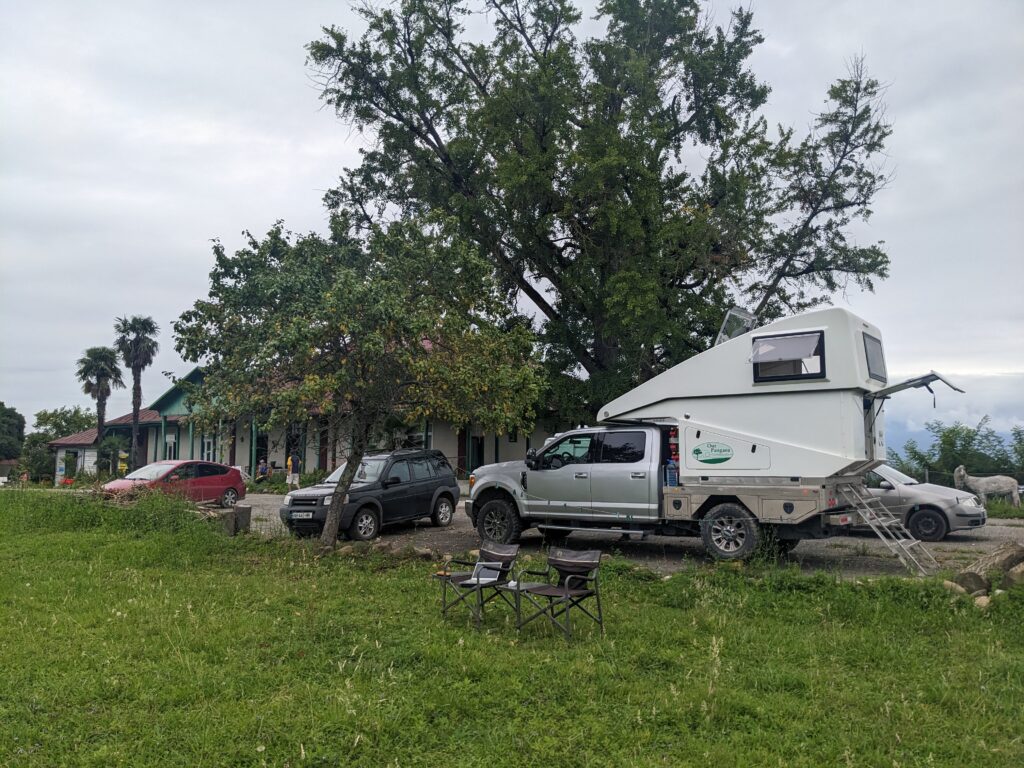
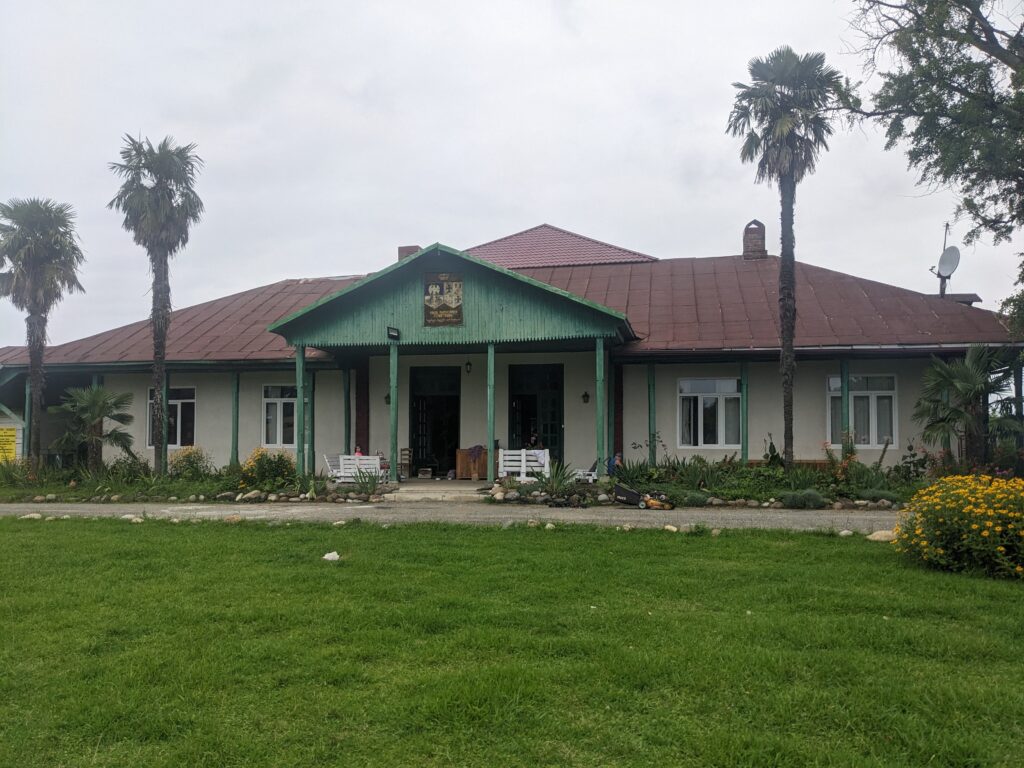
By the 1990’s the Soviets had left and the Prince’s son, who is now the Prince, his wife and children, who had been educated in the UK and lived in France, moved back onto the grounds and into the run-down chateau, which really turns out to be the family’s old hunting lodge. And today they welcome campers onto their grounds as part of their ongoing plan to fix the place up. The quirky Prince, a true character, showed us around his house, we all had a drink together and he told us endless stories, some of which may have been true.
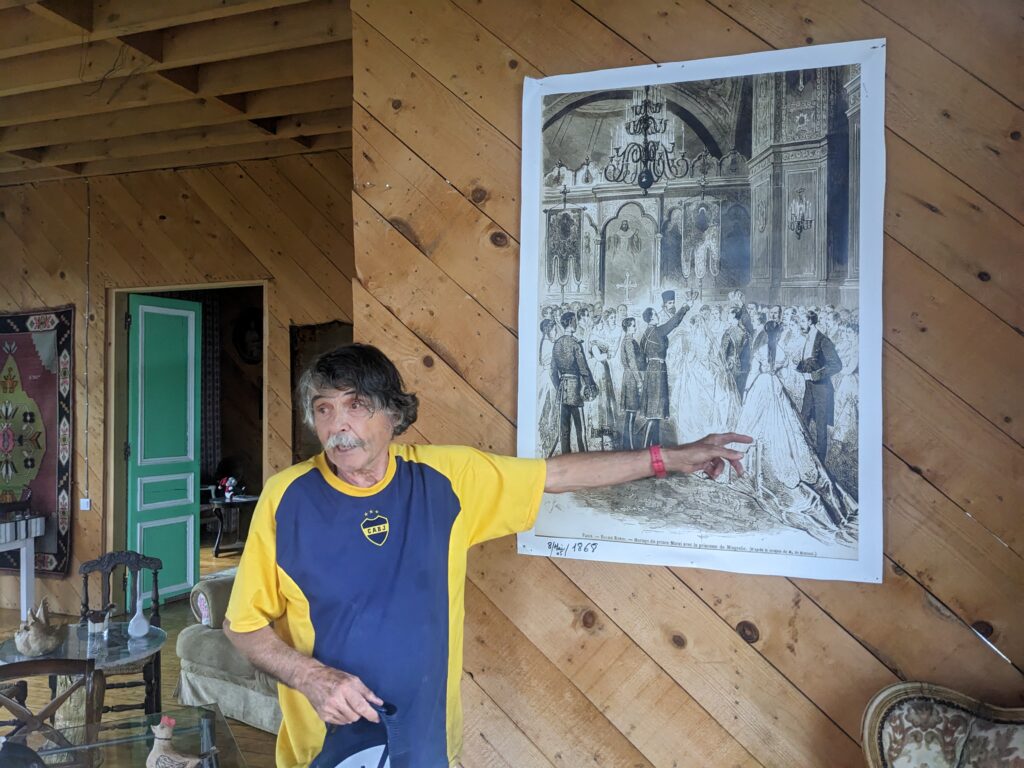
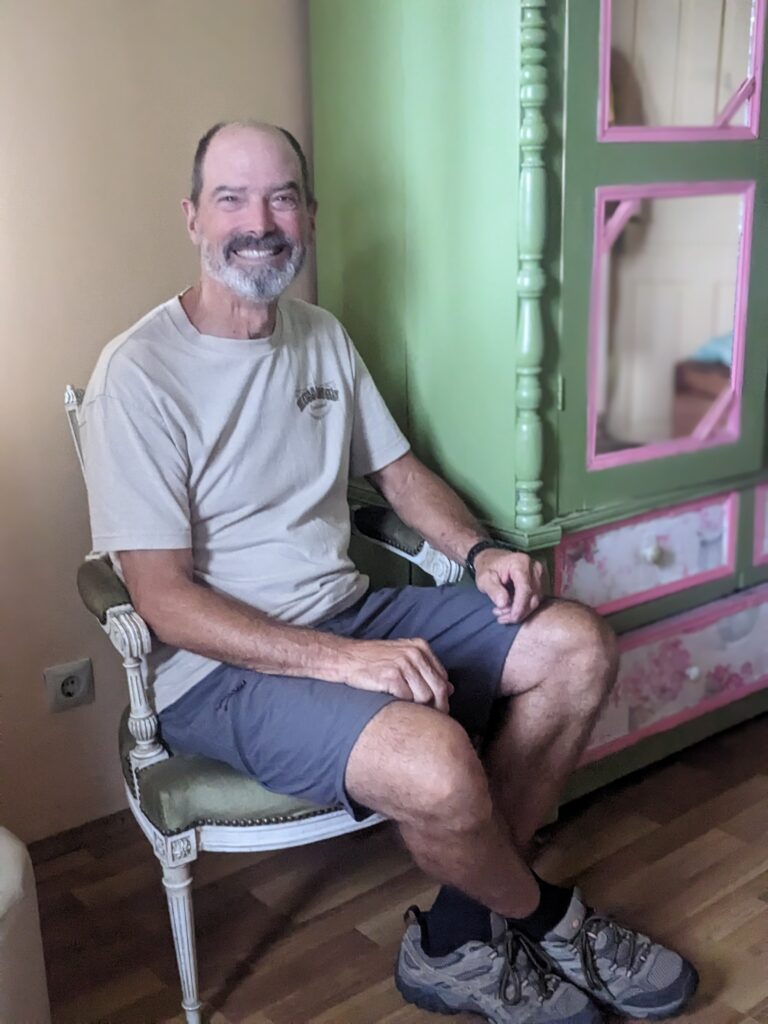
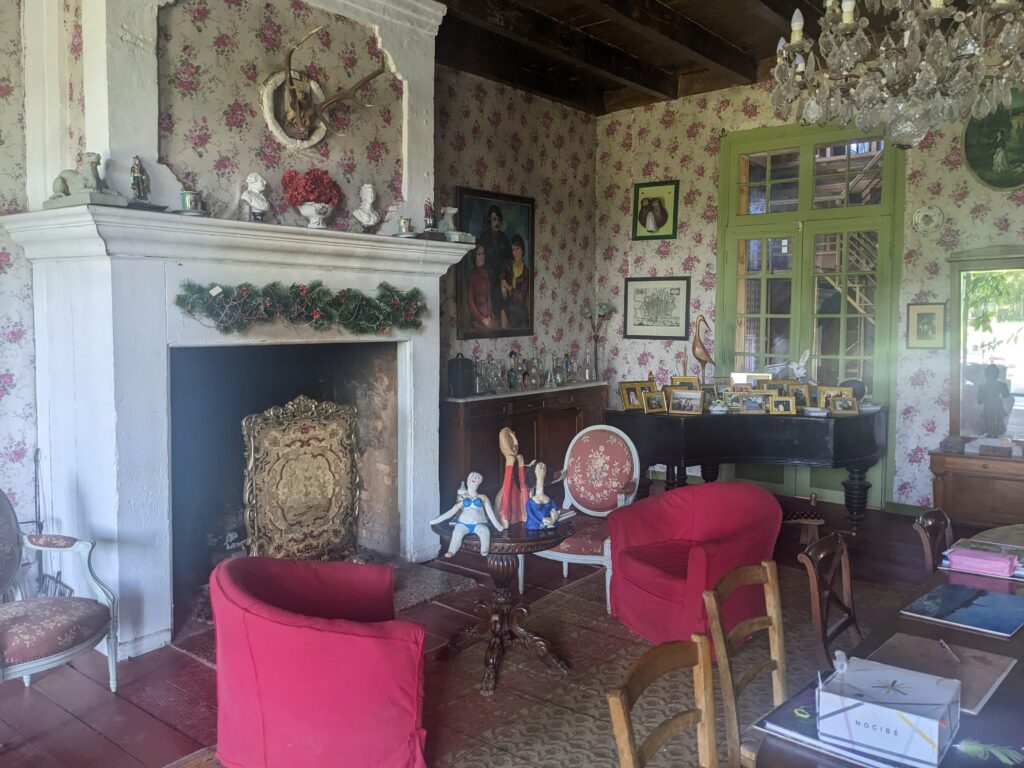
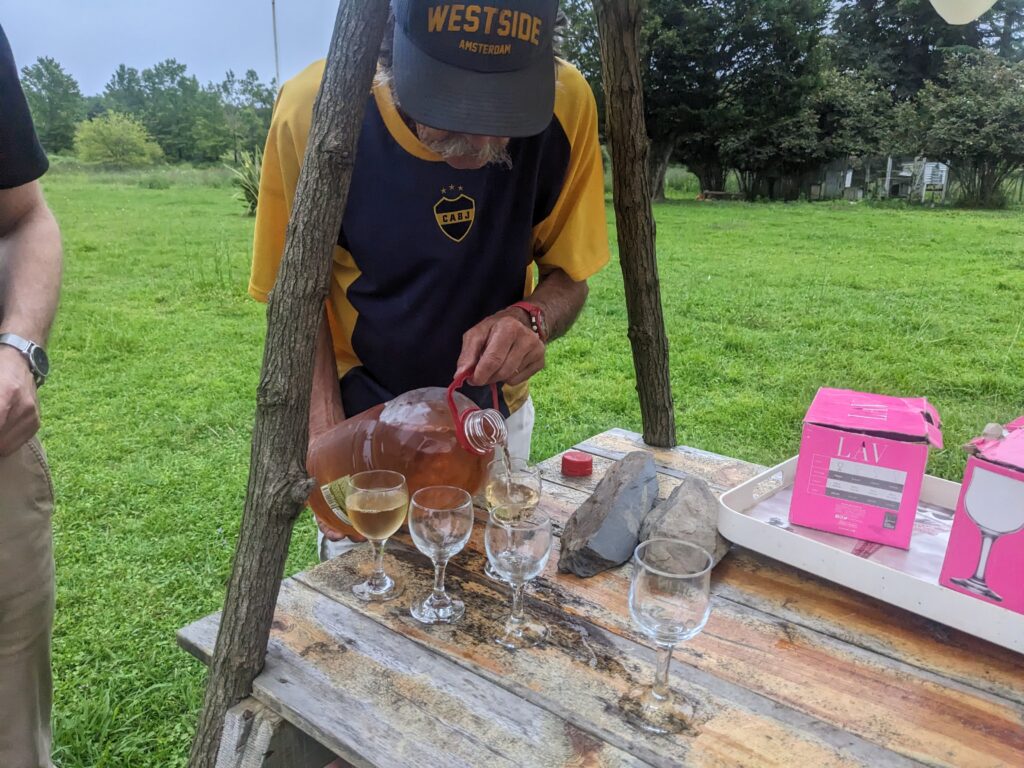
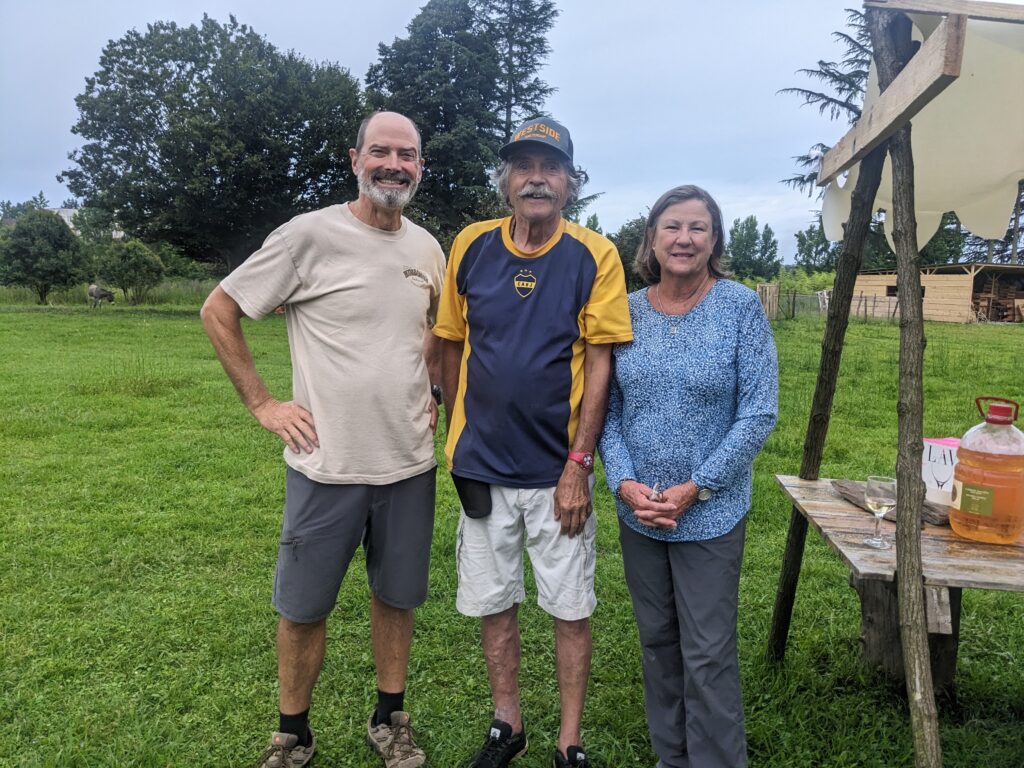
Having drunk Georgian wine with royalty, the next day we moved south through the fields featuring orchards of walnut and hazelnut to the industrial port city of Poti, Georgia’s largest port on the Black Sea. Our first view of the Black Sea was underwhelming, the water did seem a little black and the huge container ships just offshore added to the dreary scene. It could only get better.
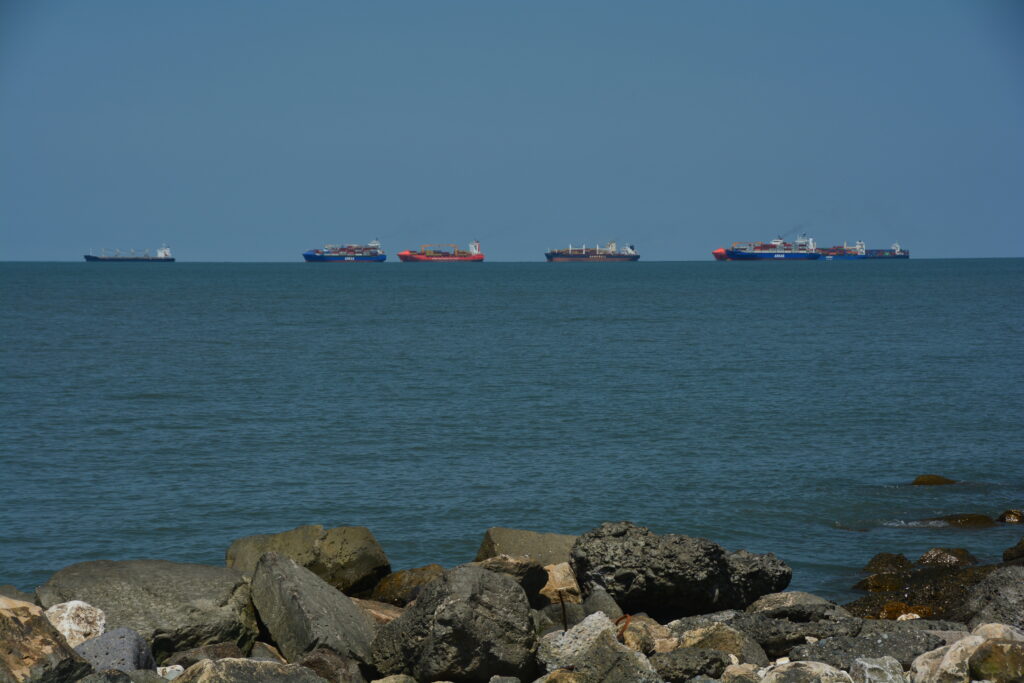
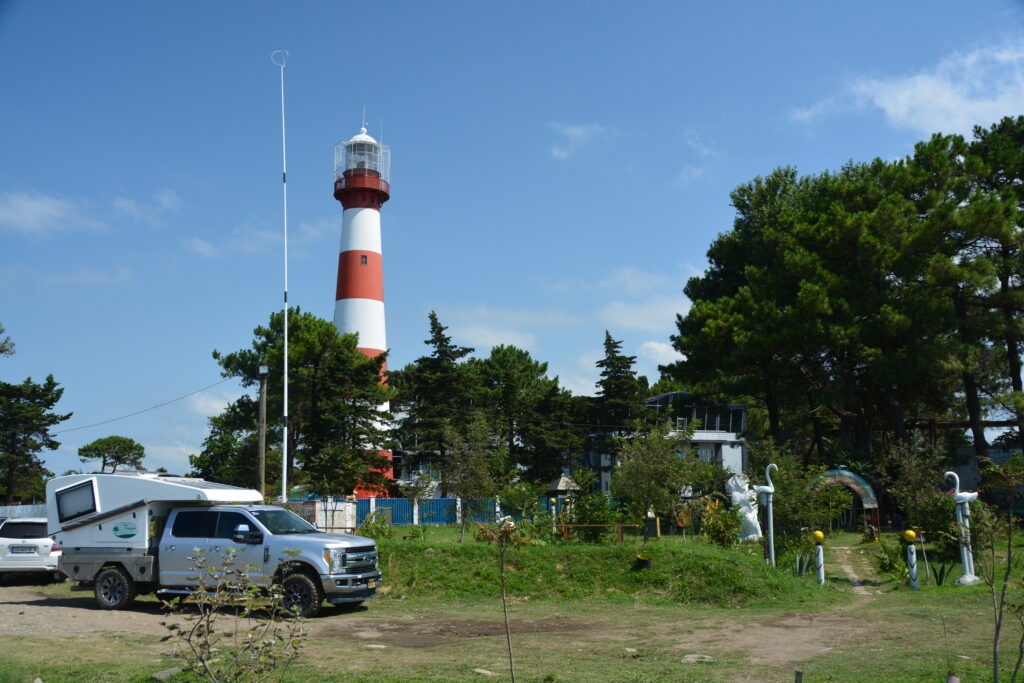
We followed the coast southward, stopping for lunch on the gravelly beach, locals enjoying the little waves on a blistering hot day. Eventually we made the seaside resort town of Batumi, bustling with growth and development as the go-to beach resort for Armenians, Georgians and Russians.
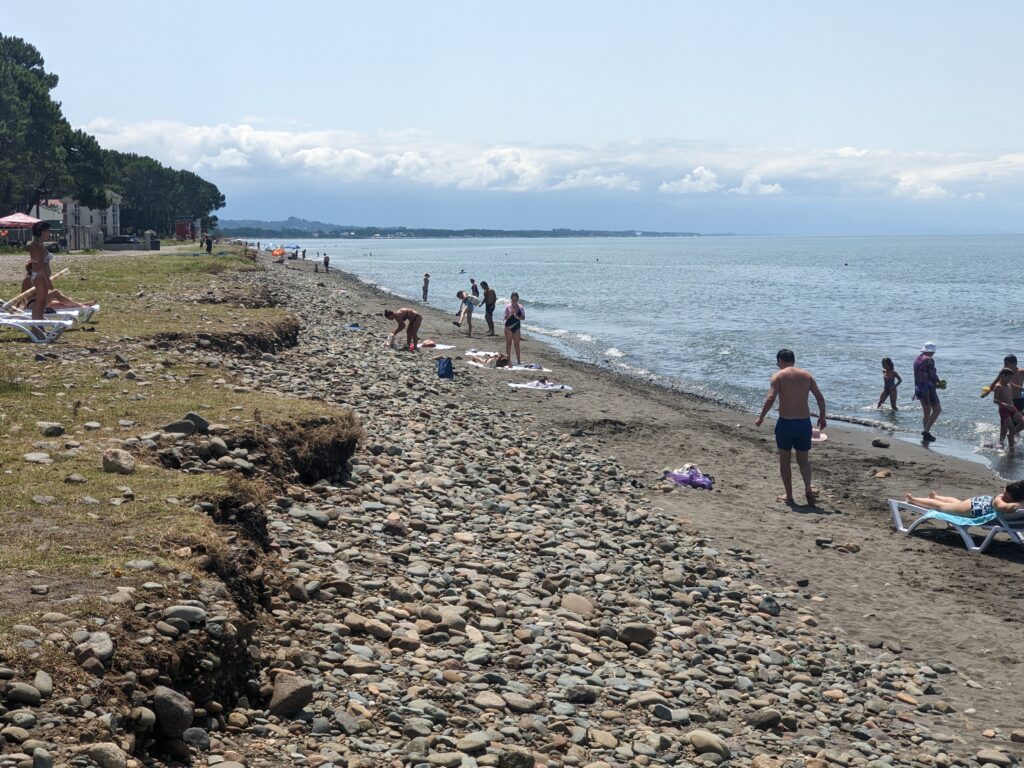
And what a surprise! We had no expectations for Batumi but it produced a splendid look. A long and wide promenade followed the beach which was lined with ice cream and cold drink shops, the busy little marina had boats coming and going with paragliders and party-goers, loud Georgian pop music blasting from each one.
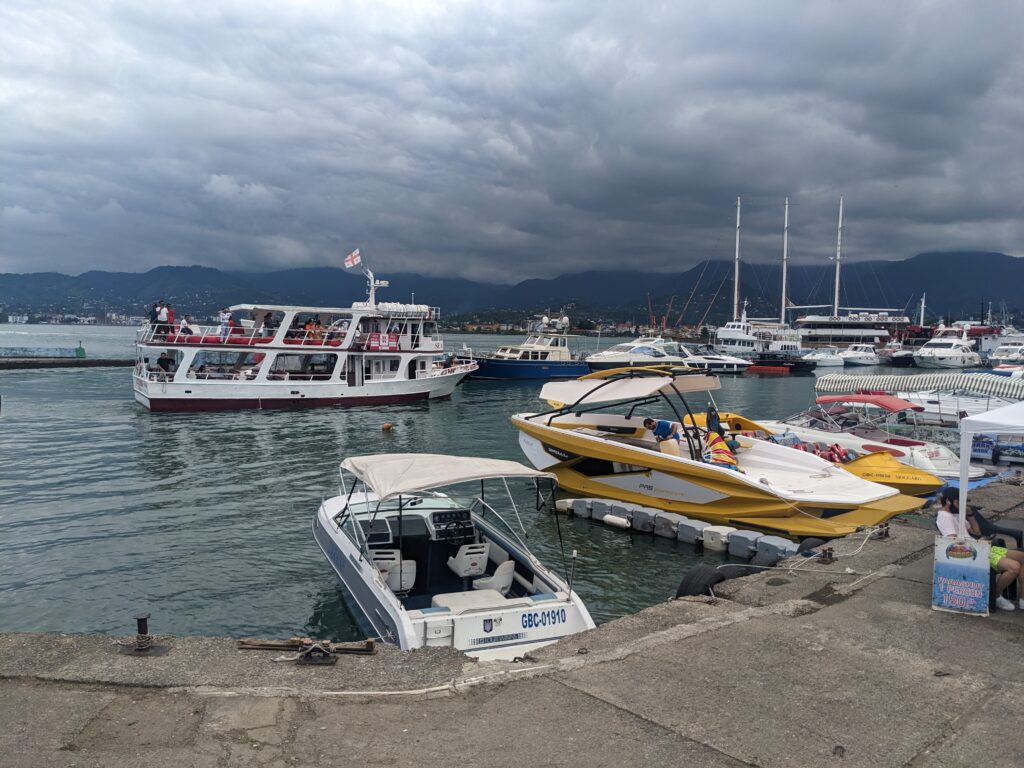
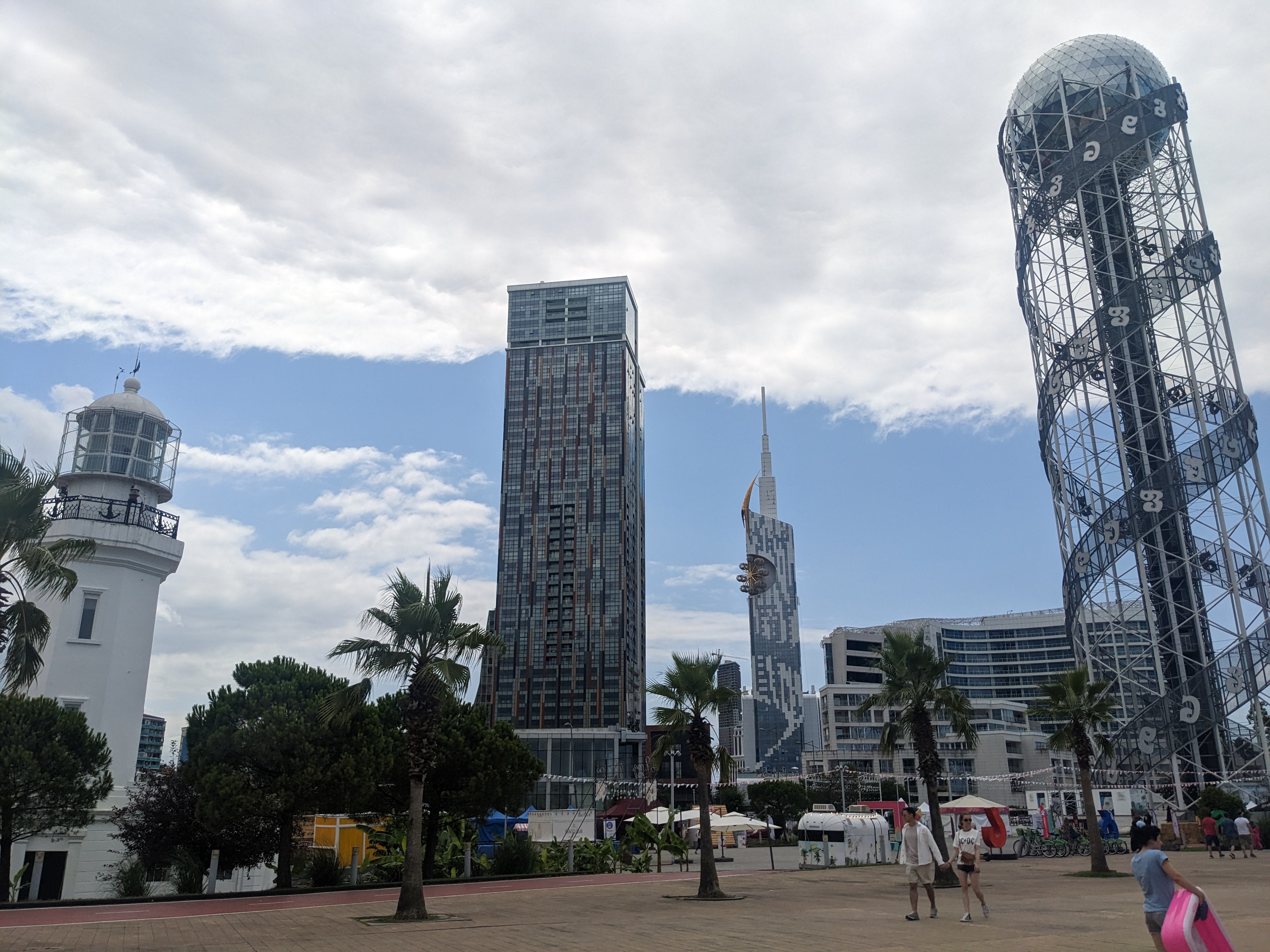
More scenes from the beaches at Batumi…



But there was another aspect of this scene that brought Julie and I back to reality. The large cruise ship Astoria Grande was berthed in the marina and coming ashore to enjoy the best Batumi has to offer was about 1,300 Russians. The ship is now home-based in Sochi, Russia and takes Russians on cruises that visit this port plus numerous ports in Turkey.
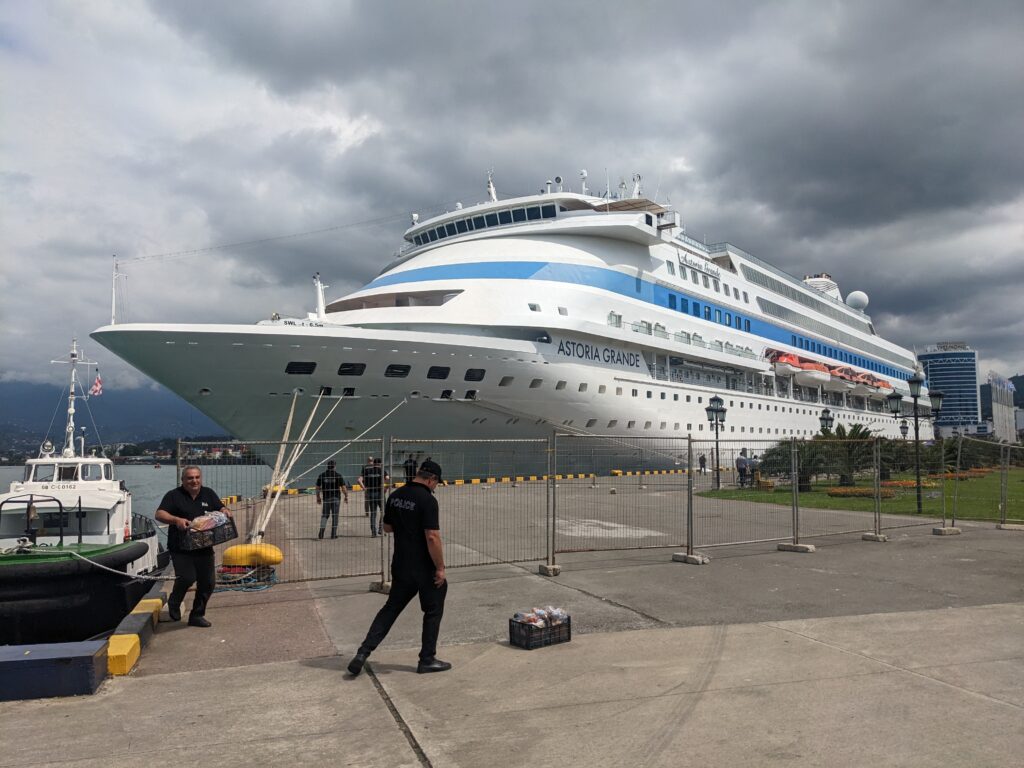
And also in the port were literally hundreds of police to preside over a handful of protesters and numerous TV camera crews who were reporting the event. Julie asked a few locals and the basic story is that these cruise ship visits with Russians have only just started and the police are worried about locals protesting their arrival and the possibility of Russians wanting to stay in Georgia. Russians are seriously unpopular in Georgia and to our mind them coming on a cruise ship when their country is at war with Ukraine was sort of an FU to the world. At the other end of the Black Sea Russia is currently bombing the Ukrainian port of Odesa. It’s a strange part of the world.
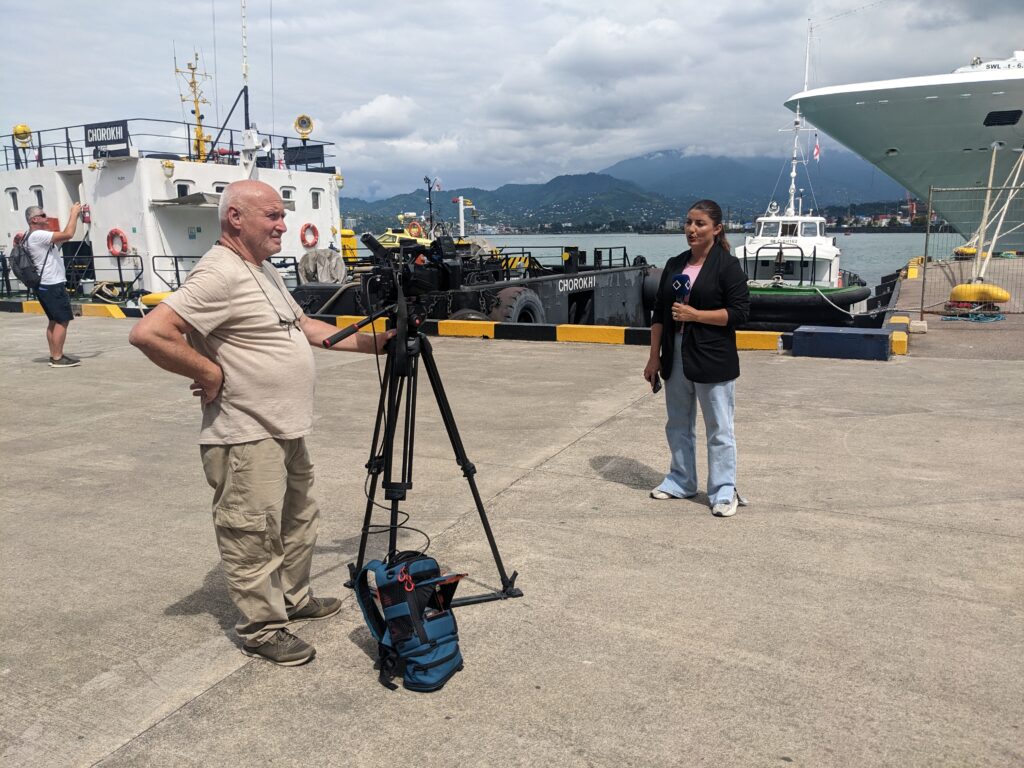
We picked up some supplies and set up camp behind a few trees just off Gonio Beach a bit south of Batumi. This would be our last night in Georgia and we were definitely reluctant to leave after two weeks of exploring this wonderful country. Nevertheless, morning came and we headed for the border to cross back into Turkey.
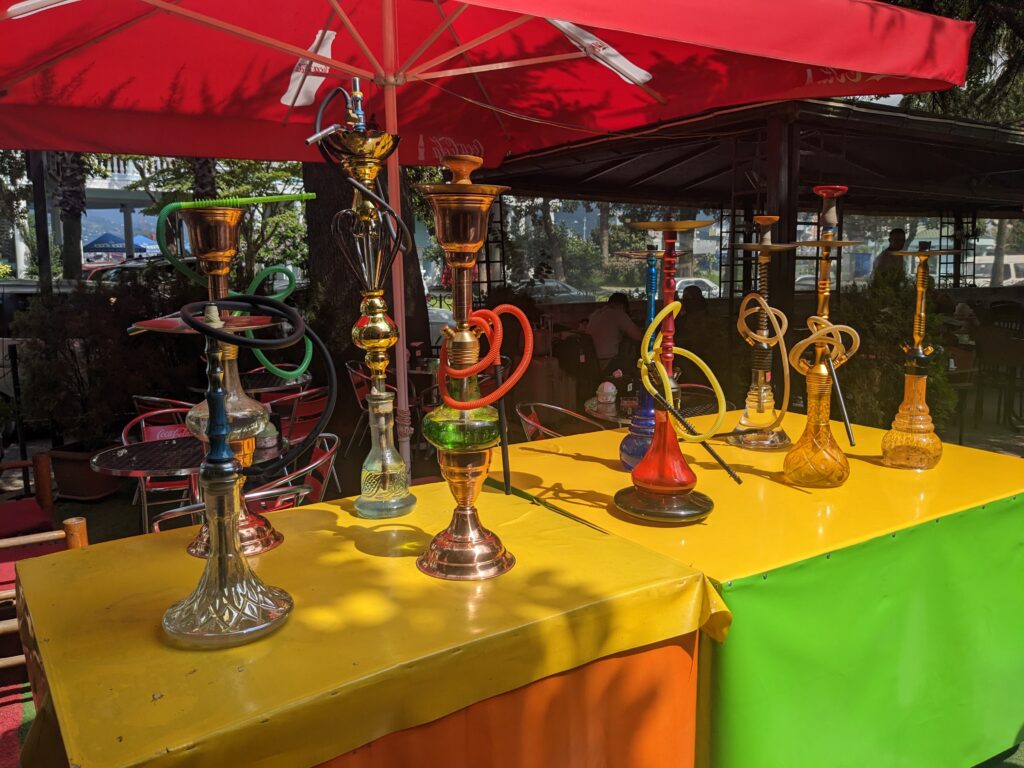
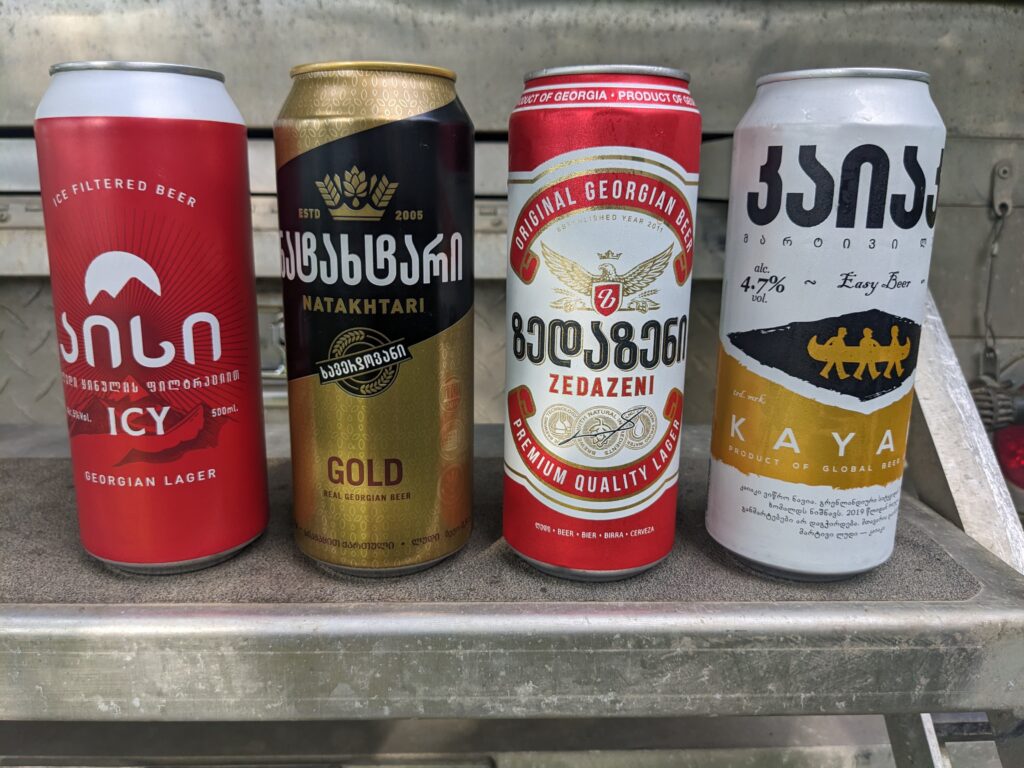
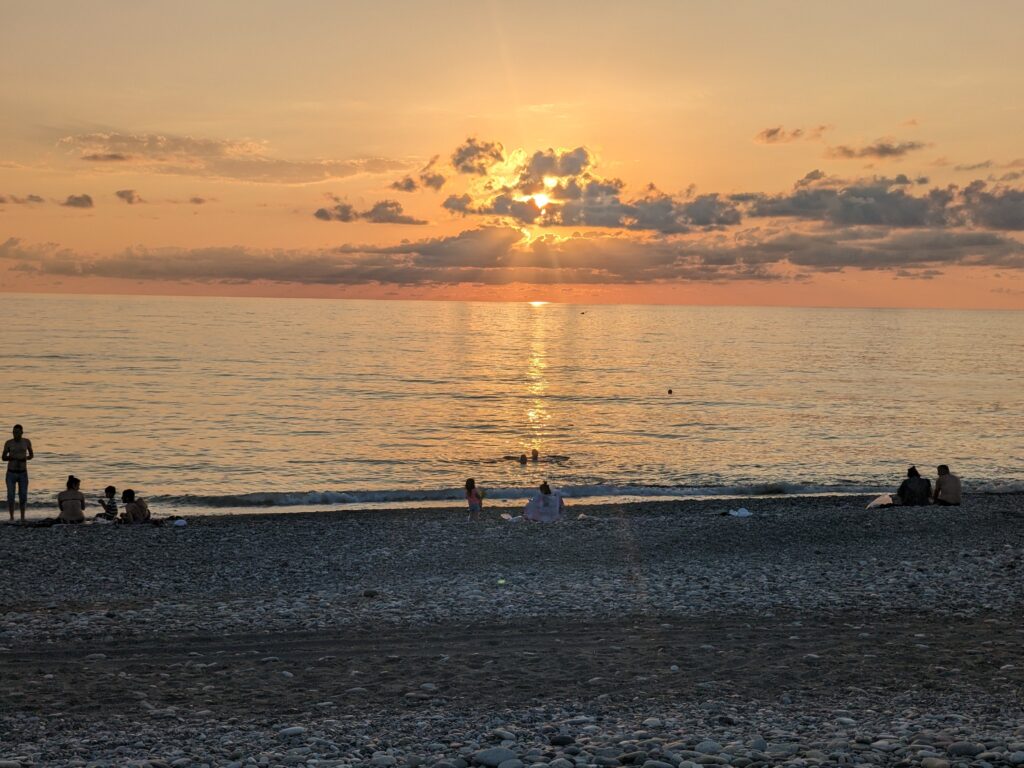
The problem – again – was Tramp. The authorities on the Turkish border said Tramp – which is registered in California – couldn’t come back into the country unless I was an American citizen. After more than 150 border crossings with Tramp we had never faced this problem, and especially since we had already crossed into Turkey once before. The Customs official was adamant, I had to be an American citizen or we couldn’t cross over.
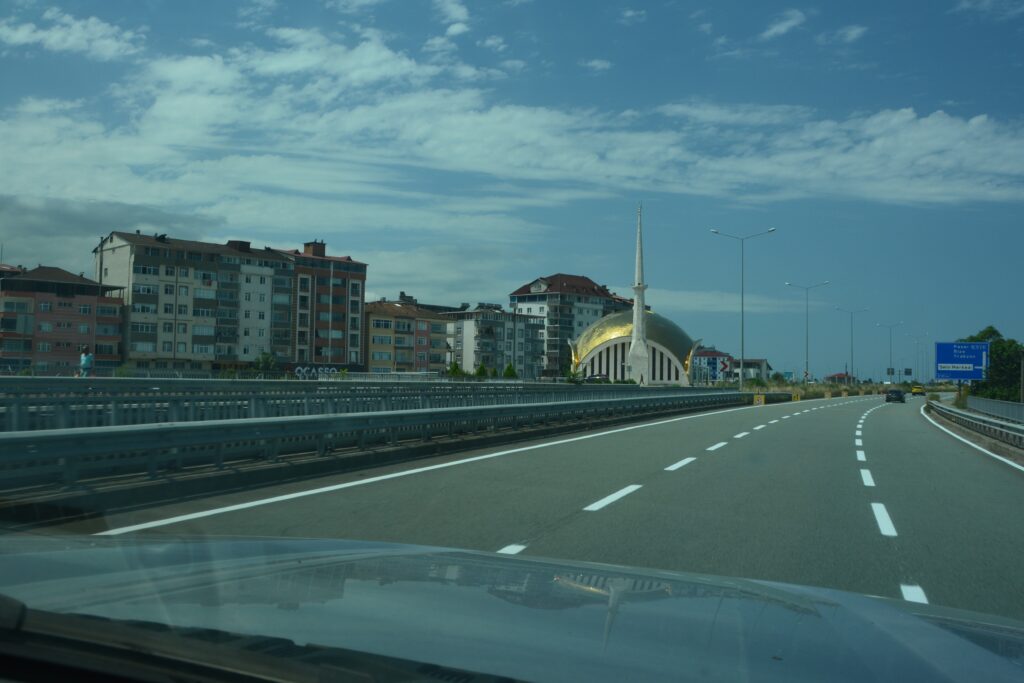
And as it happens, I am an American citizen although I usually travel on my Australian passport. So I pulled out the good ole’ US of A passport and we waltzed right into Turkey, never mind my visa and Tramp’s insurance didn’t match my passport. Such are the travails of borders.
We followed the Black Sea coast, the roads suddenly much better, the housing, shops and general appearance of communities we passed through a notch (or two) above what we had become accustomed to in Georgia. Ah Turkey, we missed you.
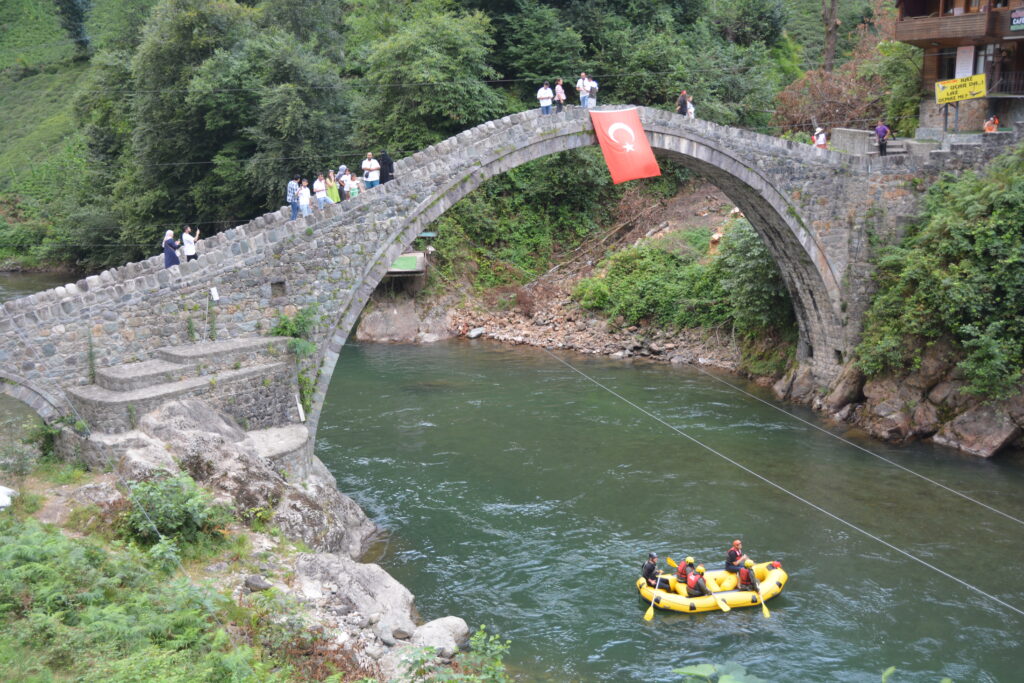
Our target was the Kackar Mountains National Park, a mountain range formed around the Firtina River and adjoining catchment area, with high steep mountains covered in thick impenetrable forest, a raging river filled with intrepid local tourists riding the currents with numerous rafting companies and a number of beautiful stone-arched bridges from the Ottoman era. This area rocked!
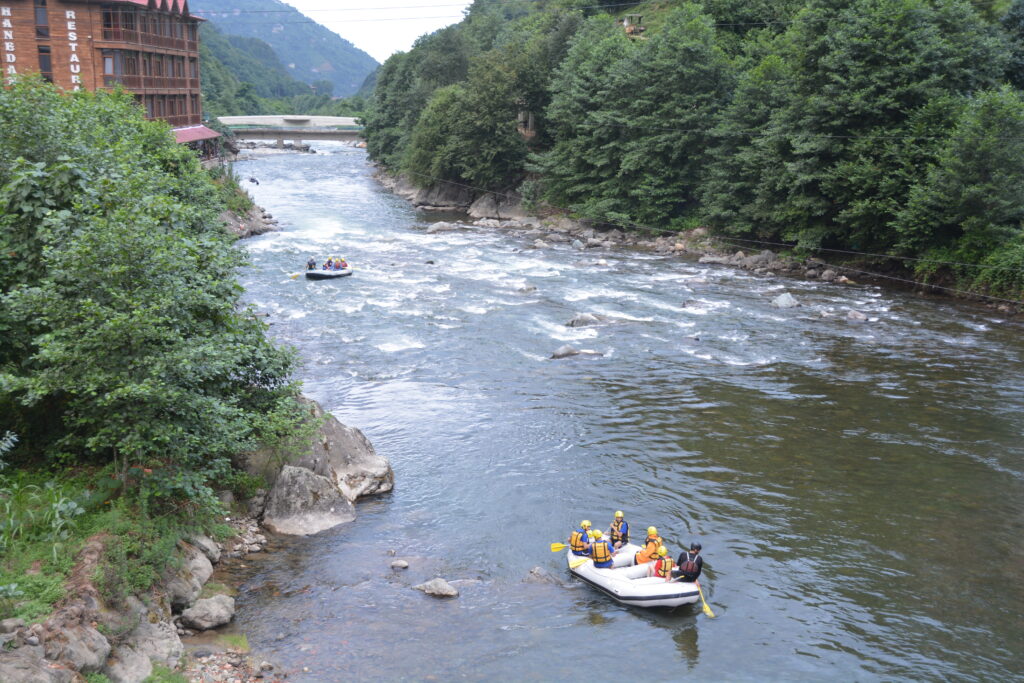
Tramp, Julie and I followed the river up into the mountains, into the national park, past numerous bridges, waterfalls and scenic views. Even though the drivers are crazy there’s no doubt travel in Turkey is much easier than Georgia and Armenia. And the crowds! We had forgotten how the Turks are avid domestic travellers and holiday makers and with this being in the smack dab middle of their summer school holidays the valley was crammed packed with tourists. And as best we could tell we were the only western foreigners.
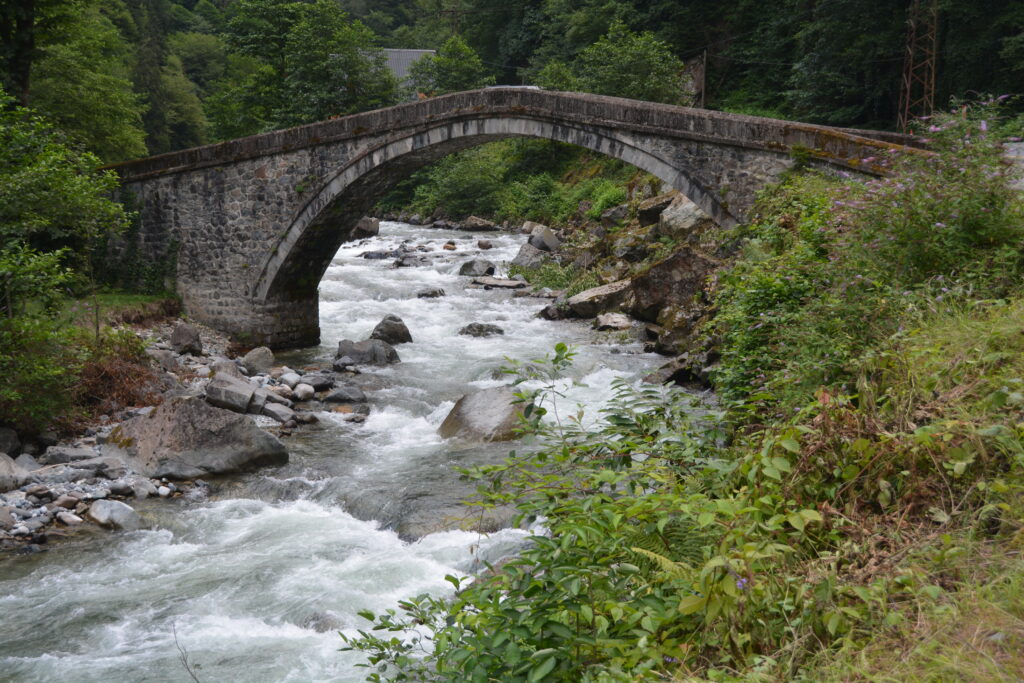
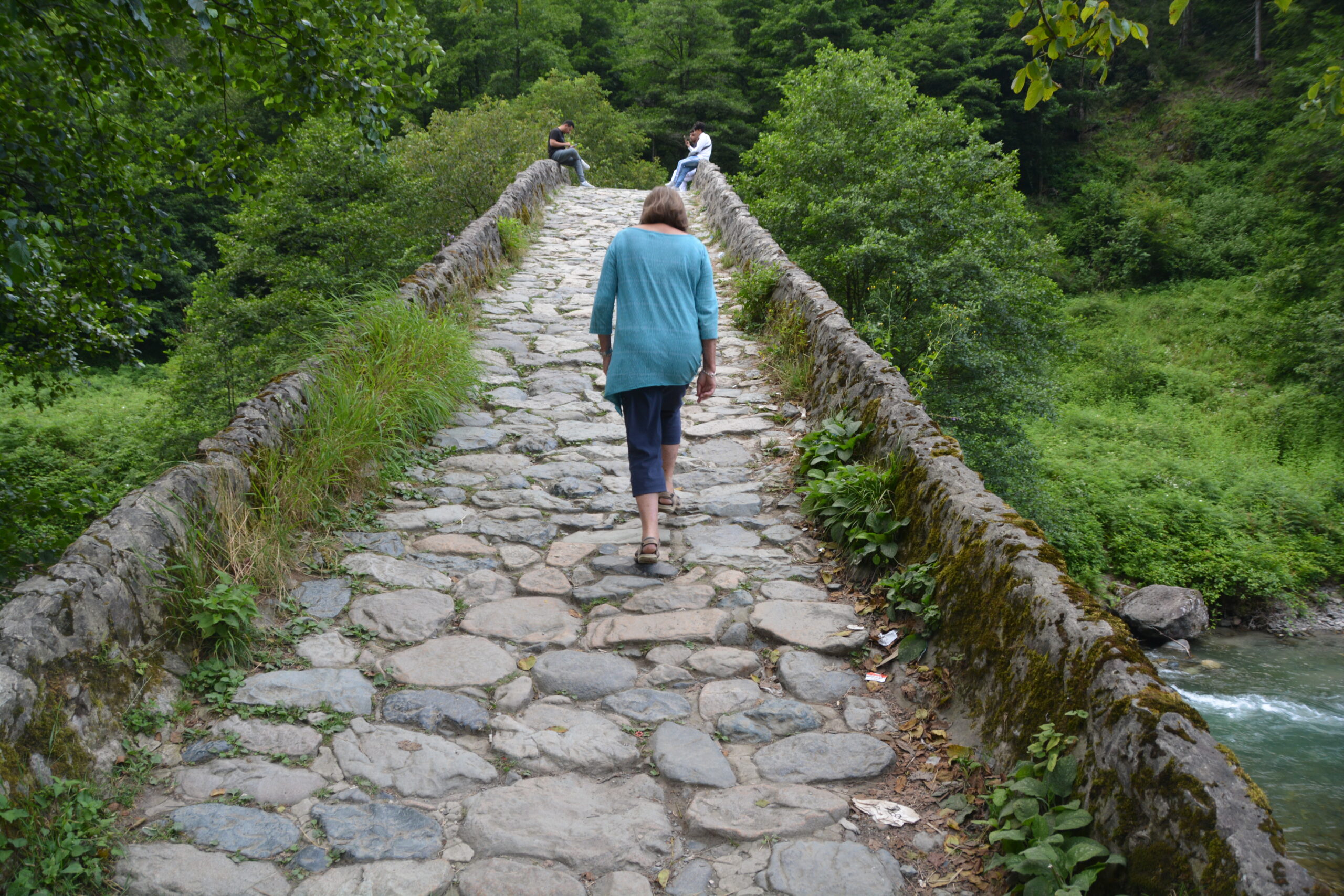
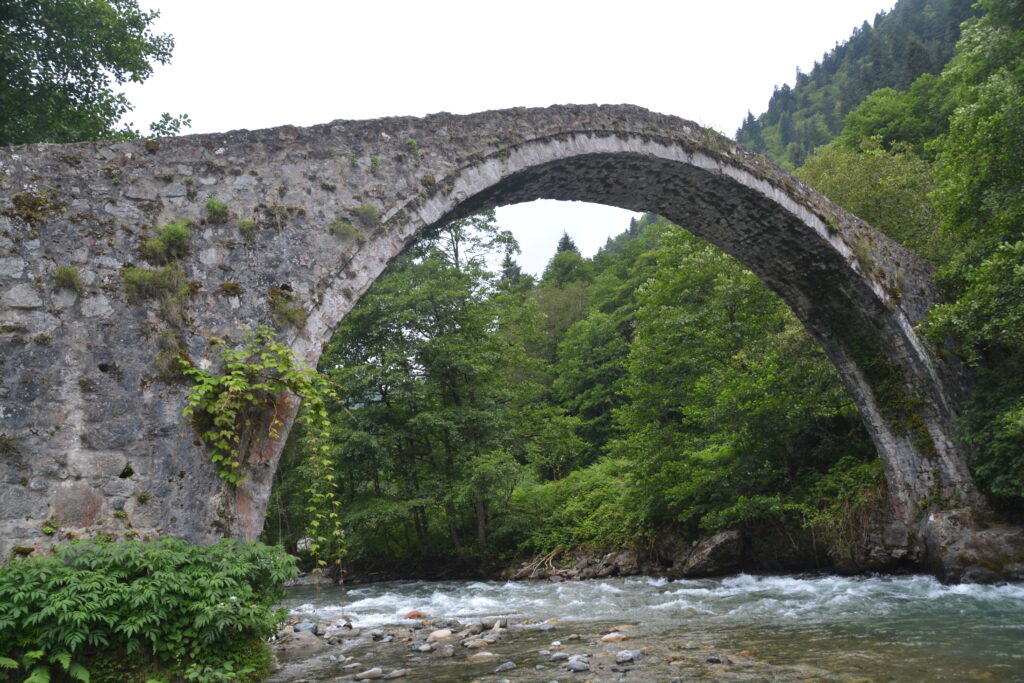
We camped that night nearby at a proper campsite, real toilets and showers, right on a busy road, just about the noisiest campsite we’d ever stayed at. But the toilets and showers were a nice change. We met more Russians at this camp, families holidaying in Turkey despite their country at war with a neighbour, asking us to pose for photos in front of Tramp. Asking for photos is a daily event for us but we can’t get our mind around the fact that on the other side of this big lake the Russians have invaded a sovereign nation and these guys are holidaying like nothing’s happening.
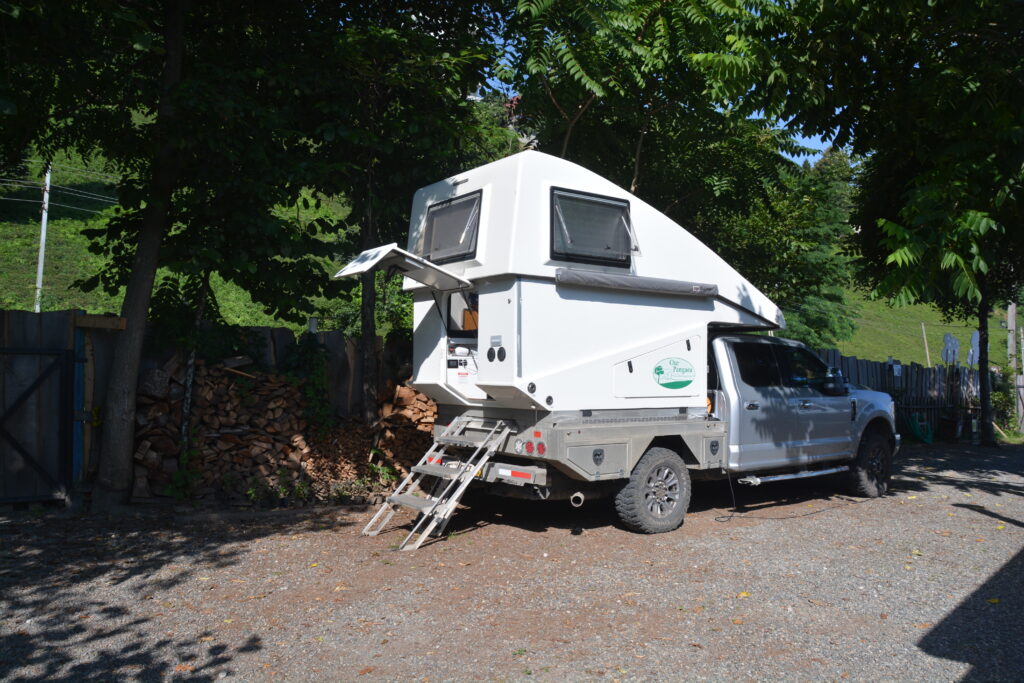
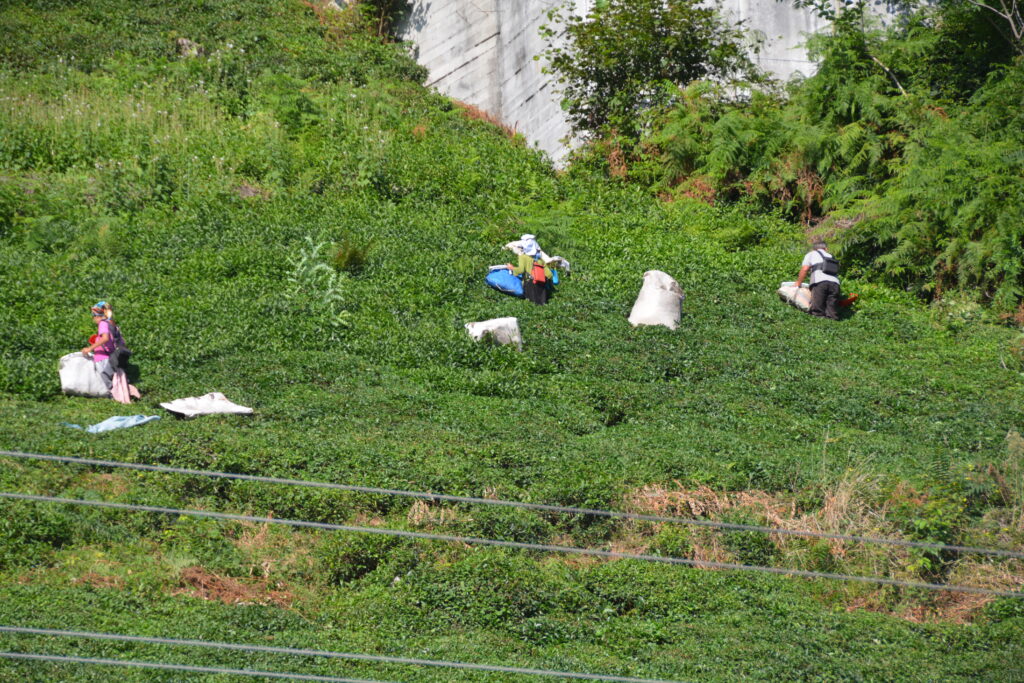
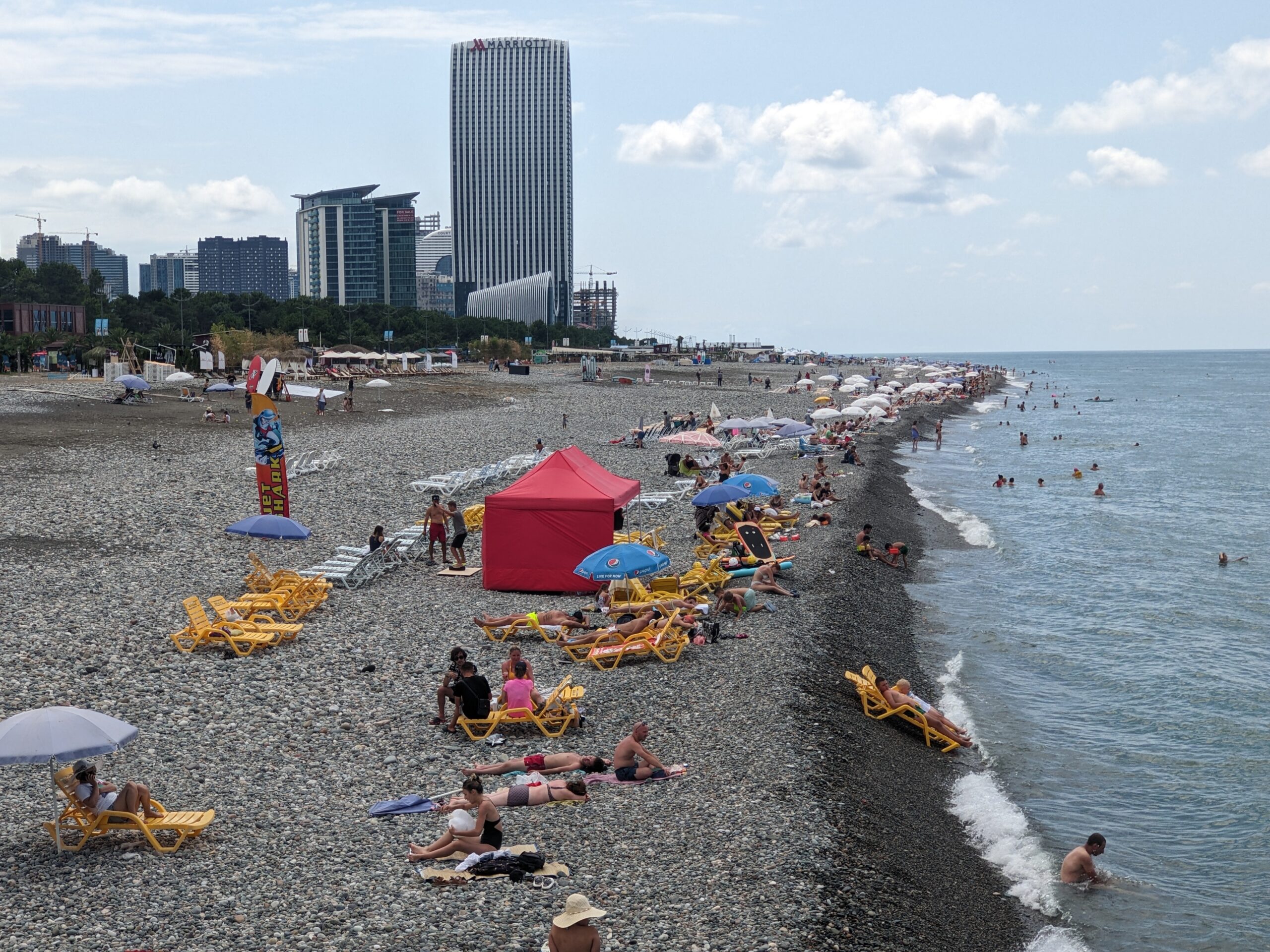
Bill, Is it possible to build such sturdy stone bridges using only stone and some mortar? If so, wow!
Hi Eric, we absolutely can not believe what structures were built so long ago without the technology and knowledge that society has today. These beautifully arched stone bridges just defy belief and they’re still going strong today!